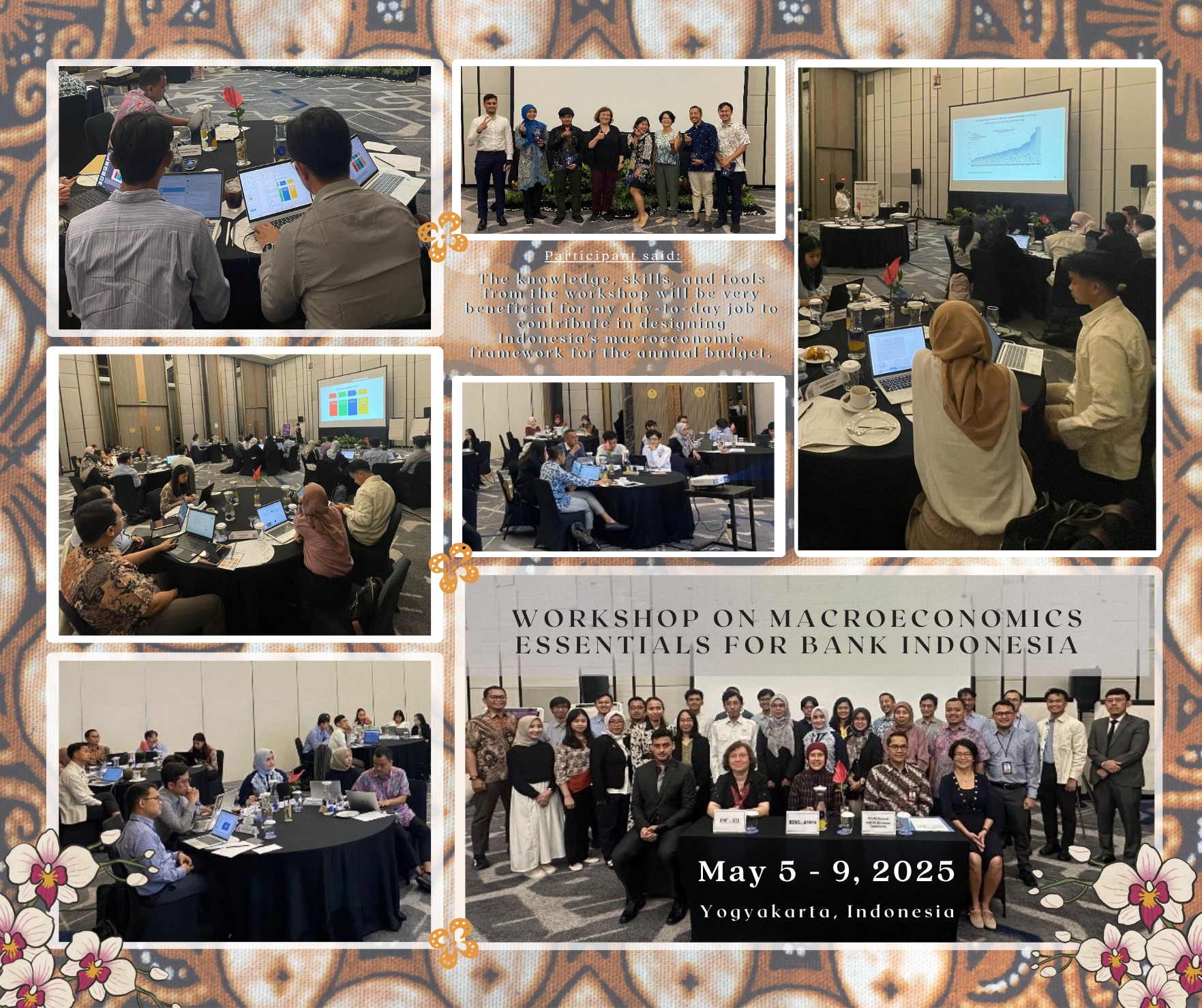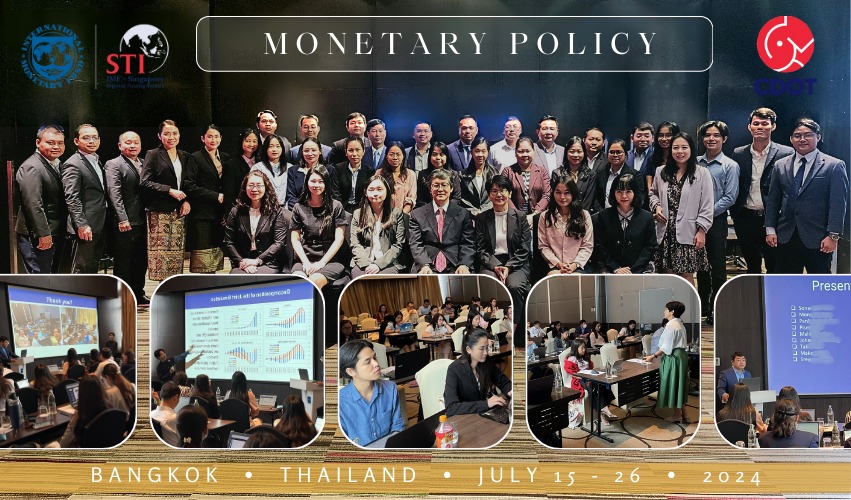STI EVENTS
 |
Fintech: Financial Inclusion or Exclusion? (June 26, 2025) |
 |
STI delivers Macroeconomics Essentials training for Bank Indonesia Institute. From May 5 to 9, 2025, STI economists conducted a customized Workshop on Macroeconomics Essentials in Yogyakarta, Indonesia, for staff from Bank Indonesia and other key government agencies. This marked the second delivery of the workshop, reinforcing STI’s longstanding collaboration with the Bank Indonesia Institute. The training served as an introduction to macroeconomic analysis, featuring a blend of carefully structured lectures and interactive sessions. Participants learned topics such as growth accounting, fiscal and monetary policy analysis, and vulnerability indicators. Participants gave highly positive feedback on the course! One participant remarked: We extend our sincere thanks to the Bank Indonesia Institute for their warm hospitality and strong support in making this course a success. (May 9, 2025) |
Macroeconomics of Climate Change, January 20–30, 2025 Thirty-three participants from 14 countries (mostly Pacific Island Countries) attended the first-ever Macroeconomics of Climate Change (MCC) course delivered at the IMF’s Pacific Financial Technical Assistance Center (PFTAC) in Suva, Fiji. We had the privilege of hearing opening speeches from PFTAC Director Mr. Samir Jahjah, Fiji Deputy Prime Minister and Minister of Finance Mr. Biman Chand Prasad, and Australian Deputy High Commissioner Ms. Clair McNamara. The Governor of the Reserve Bank of Fiji, Mr. Ariff F. Ali, delivered the closing speech. Given the imminent threat from rising sea levels in the region, participants showed great interest and motivation. (January 30, 2025) |
 |
Close collaboration between STI and CDOT contributed to the success of a course on Monetary Policy in Bangkok. Thirty-four participants from Cambodia, Lao PDR, and Vietnam attended the course aimed at enhancing monetary policy analysis and implementation. One participant said: “The course excelled in offering a deep dive into various monetary policy frameworks, with effective workshops and case studies. To me, it provided valuable insights into monetary policy transmission mechanisms, forecasting, and central bank communications. The practical workshops enhanced my skills in model-based analysis and central bank communications, making these concepts highly relevant to my work.” (July 26, 2024) |

